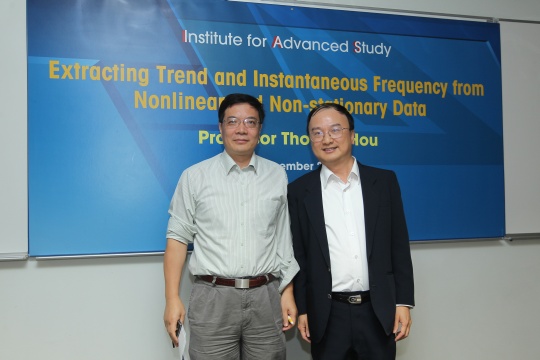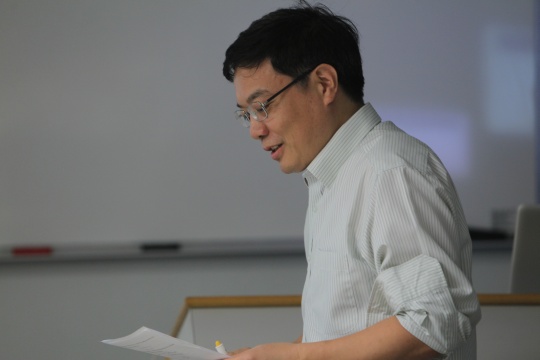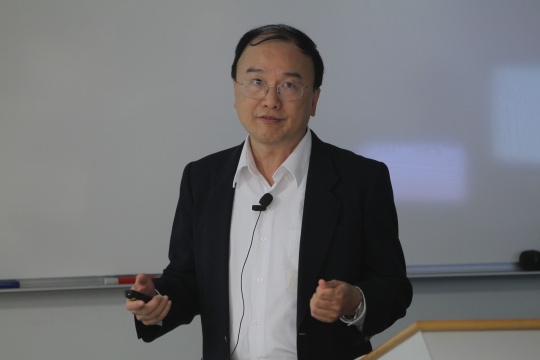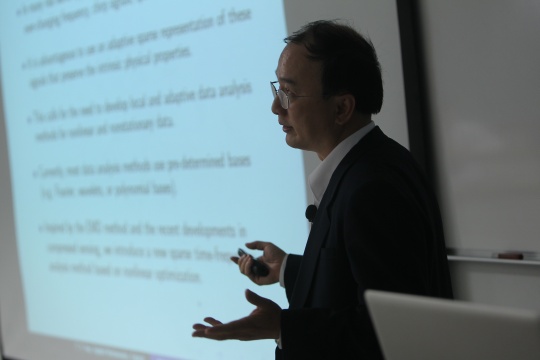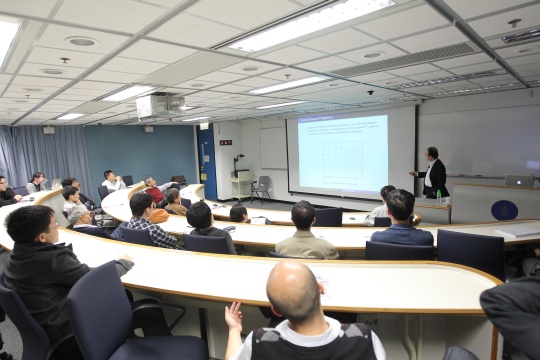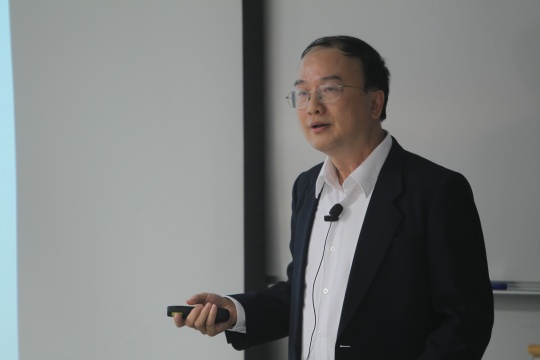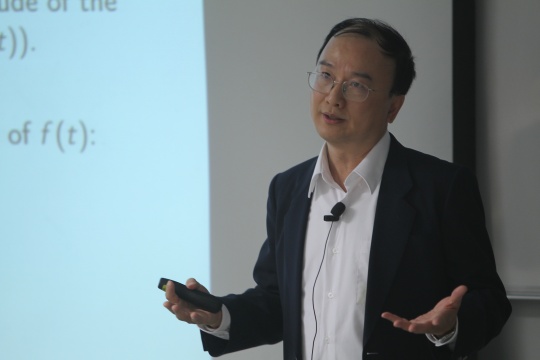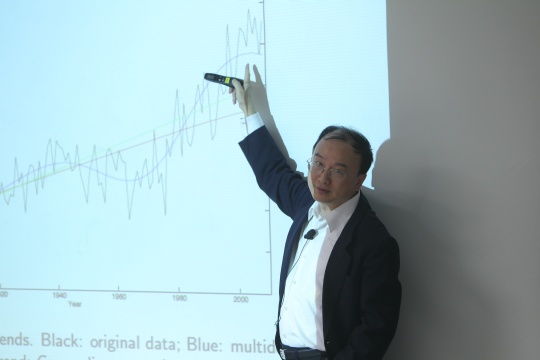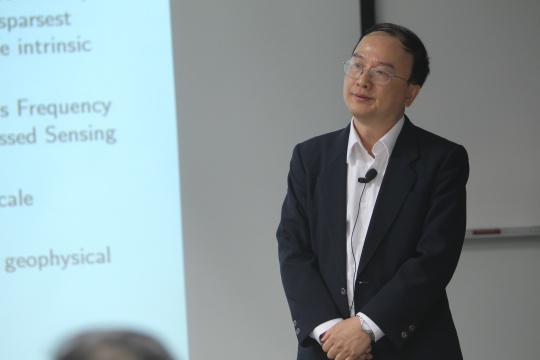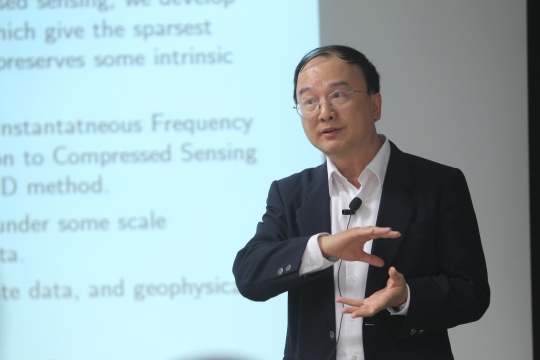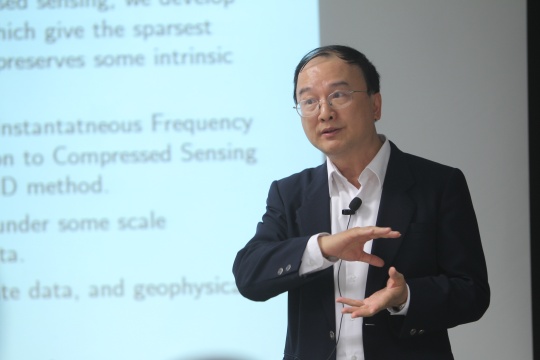Extracting Trend and Instantaneous Frequency from Nonlinear and Non-stationary Data
Abstract
How to extract trend from highly nonlinear and non-stationary data is an important problem that has many practical applications ranging from bio-medical signal analysis to econometrics, finance, and geophysical fluid dynamics. We review some existing methodologies in defining trend in data analysis. Many of these methods use predetermined basis and is not completely adaptive. They tend to introduce artificial harmonics in the decomposition of the data. Various attempts to preserve the temporal locality property of the data introduce problems of their own. Inspired by the Empirical Mode Decomposition method (EMD) and the recently developed compressed sensing theory, we introduce a data-driven time-frequency analysis method using nonlinear optimization. The key idea is to look for the sparsest representation of the data in terms of some unknown basis that is derived from the physical data. We will show that this formulation has some beautiful mathematical structure and can be considered as a nonlinear version of compressed sensing.
About the speaker
Prof. Thomas Y. Hou is the Charles Lee Powell Professor of applied and computational mathematics at the California Institute of Technology, and is one of the leading experts in vortex dynamics and multiscale problems. His research interests are centered around developing analytical tools and effective numerical methods for vortex dynamics, interfacial flows, and multiscale problems. He received his PhD from University of California at Los Angeles in 1987. Upon graduating from UCLA, he joined the Courant Institute as a postdoc and then became a faculty member in 1989. He moved to the applied math department at Caltech in 1993, and is currently the executive director of applied and computational mathematics. Prof Hou has received a number of honors and awards, including Fellow of the American Academy of Arts and Sciences in 2011, the SIAM Fellow in 2009, the Computational and Applied Sciences Award from USACM in 2005, the Morningside Gold Medal in Applied Mathematics in 2004, the SIAM Wilkinson Prize in Numerical Analysis and Scientific Computing in 2001, the Francois N. Frenkiel Award from the Division of Fluid Mechanics of APS in 1998, the Feng Kang Prize in Scientific Computing in 1997, a Sloan fellow from 1990 to 1992. He was an invited plenary speaker at the International Congress of Industrial and Applied Mathematics in 2003, and an invited speaker of the International Congress of Mathematicians in 1998. He was also the founding Editor-in-Chief of the SIAM Journal on Multiscale Modeling and Simulation from 2002 to 2007.

